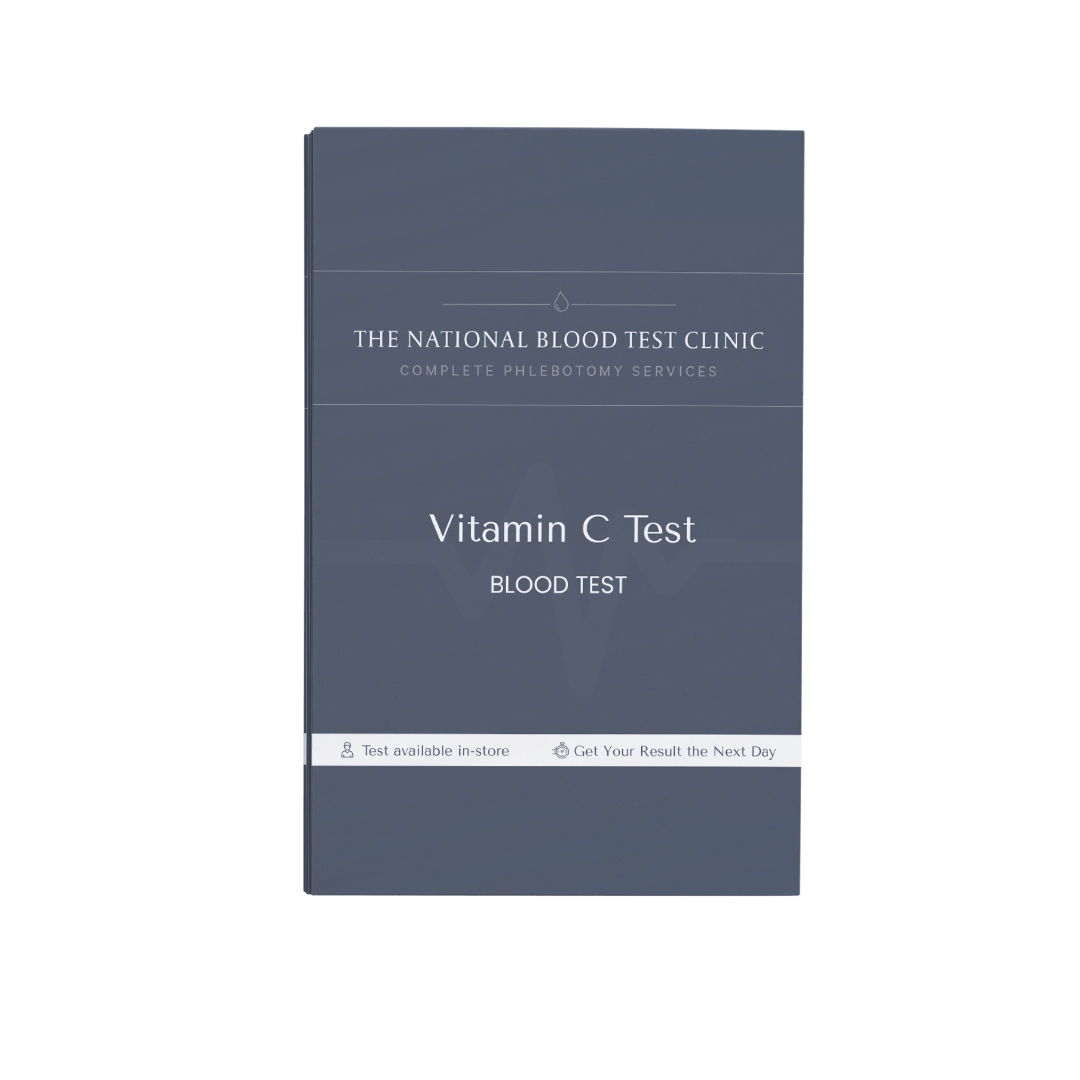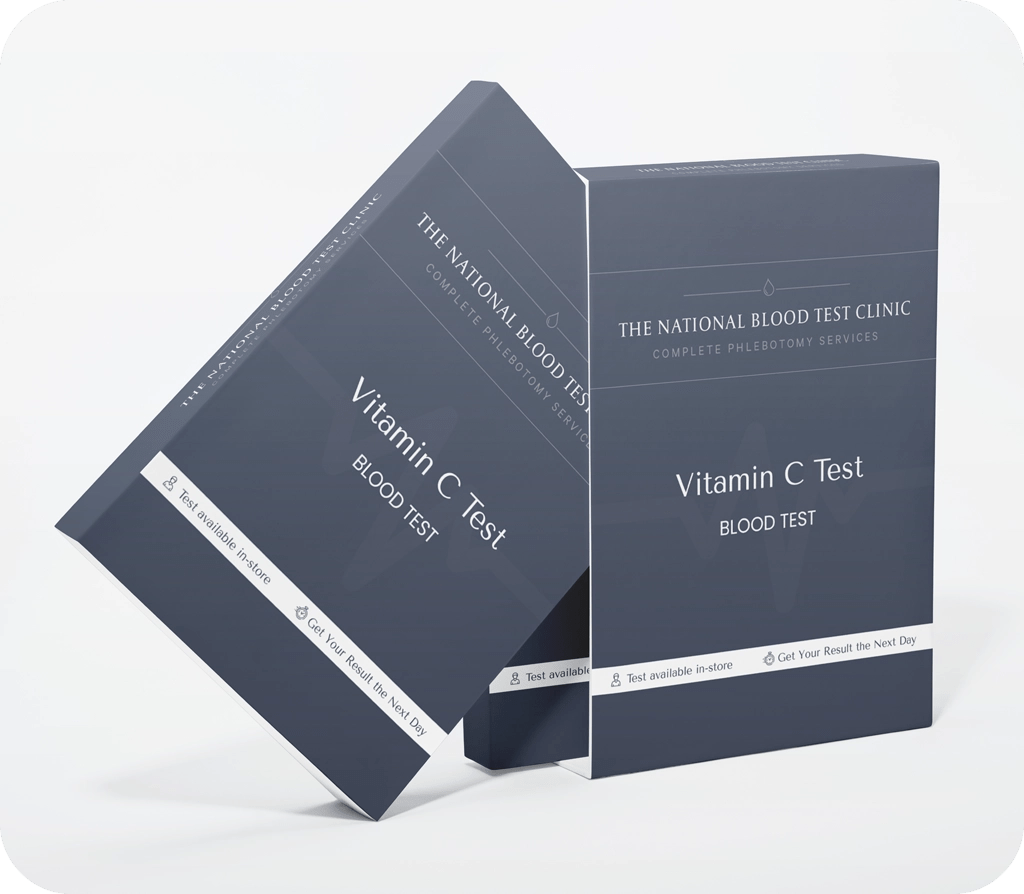My Store
Vitamin C Test
Vitamin C Test
SKU:VITC
Ensure your health is on track with the Vitamin C Blood Test. Vitamin C is a vital antioxidant that supports a healthy immune system, promotes collagen production, and helps with wound healing. A deficiency in Vitamin C can lead to fatigue, weakened immunity, and skin issues like bruising or bleeding gums.
Why Vitamin C Blood Test Matters?
This simple blood test accurately measures your Vitamin C levels, helping you identify any deficiencies early. If you're feeling sluggish, have poor skin health, or just want to ensure optimal nutrition, a Vitamin C test is an essential step towards maintaining your wellness..
What Gets Assessed?
- Level of vitamin C in body
Turnaround Time
- 8 Days
100 in stock
Visit a partner clinic (+£50)
Once you've ordered your test, look out for an email from our phlebotomy partners containing information and a link to book your appointment. We'll send you everything the clinic will need to complete the sample and post it back to our labs.
Organise a nurse yourself
If none of the above options work for you, you can arrange your own medical professional to collect your sample. There is no additional charge for this. Once you've ordered your test, we'll send you everything you and your chosen medical professional will need to collect a sample and post it back to our labs.
Couldn't load pickup availability
Enter Your Details
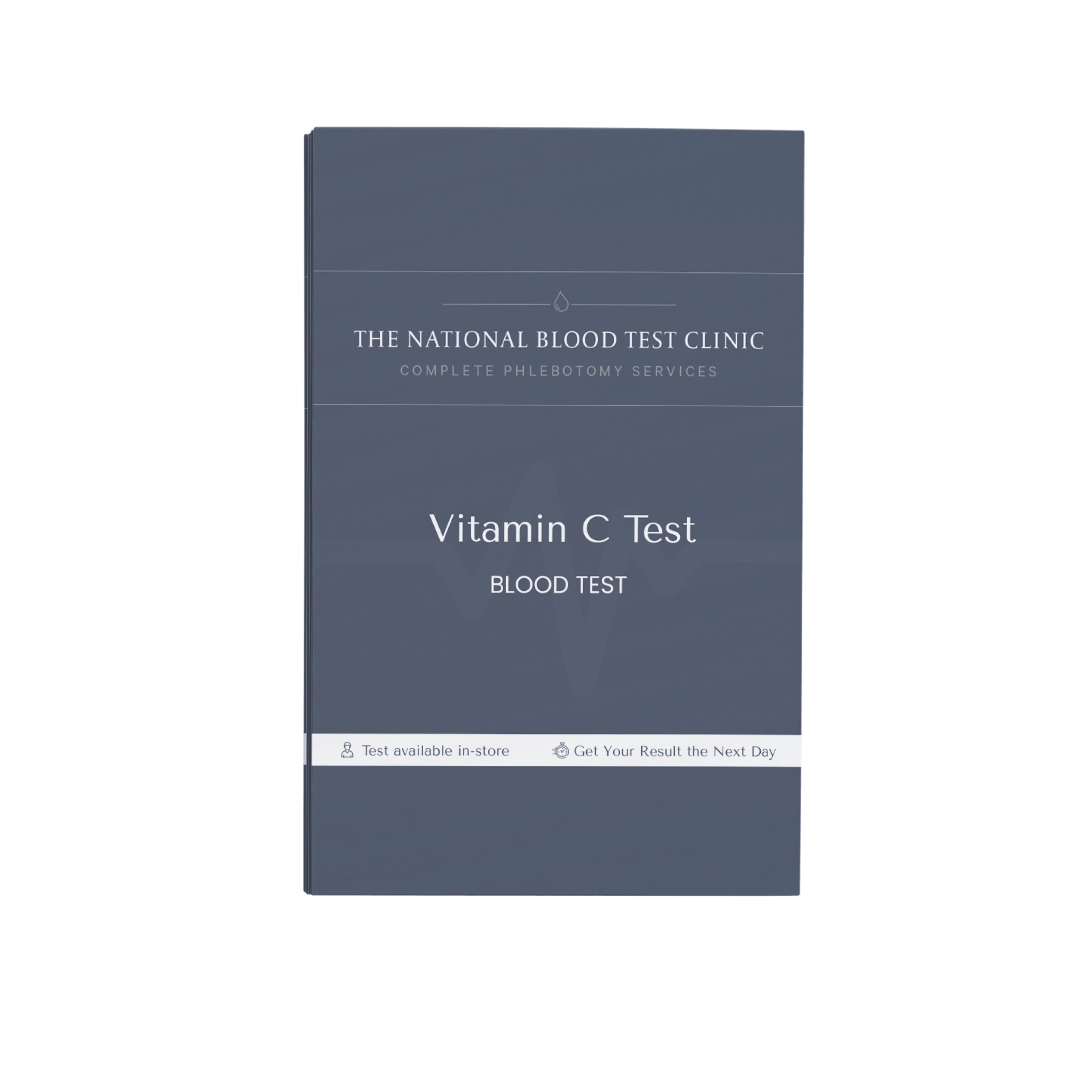
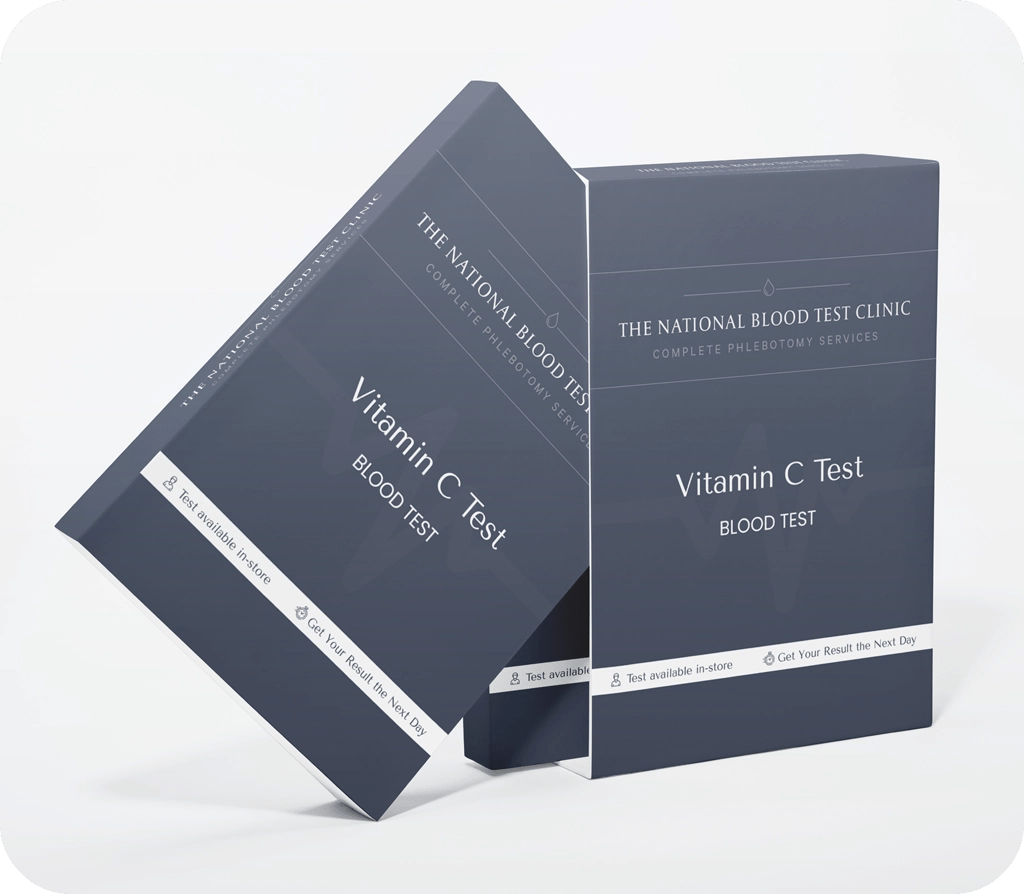
Visit a partner clinic (+£50)
Once you've ordered your test, look out for an email from our phlebotomy partners containing information and a link to book your appointment. We'll send you everything the clinic will need to complete the sample and post it back to our labs.
Organise a Nurse Yourself
If none of the above options work for you, you can arrange your own medical professional to collect your sample. There is no additional charge for this. Once you've ordered your test, we'll send you everything you and your chosen medical professional will need to collect a sample and post it back to our labs.
How Our Test Works
-

Place Your Order
Place your order online and receive a test kit delivered to your home. You’ll need to bring this kit with you to your scheduled appointment at one of our partner blood collection clinics.
-

Attend Your Appointment
At your chosen clinic, a trained nurse or phlebotomist will collect your blood sample using the kit you bring. If a sample collection courier is not available at the site, you’ll be asked to take the sealed sample with you and post it using the prepaid packaging provided.
-
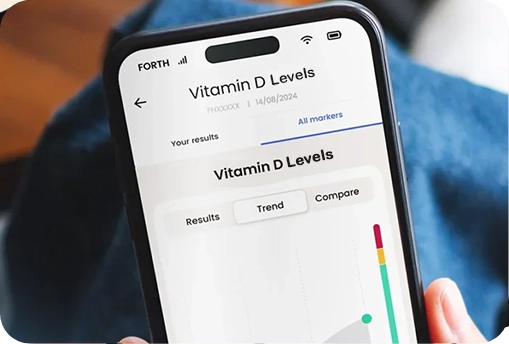
Receive Your Results
Once your results are ready, you’ll receive an email notification to log in and view them securely via your private portal. Please note: venous blood test results are not automatically reviewed by a doctor. We recommend booking a consultation with a qualified clinician to help you interpret and understand your results fully.
FAQs
What does the Vitamin C test measure?
It measures the level of ascorbic acid in your blood, which reflects how much Vitamin C is available for immune function, tissue repair, and antioxidant protection. This helps identify both deficiency and excess.
Who should be tested for Vitamin C?
People with frequent infections, slow wound healing, bleeding gums, or those with diets low in fruits and vegetables should consider this test. It is also useful for individuals with alcohol dependence, smoking habits, or chronic illness.
What are signs of Vitamin C deficiency?
Deficiency may cause bleeding gums, skin problems, fatigue, joint pain, and slow recovery from wounds. In severe cases, it can lead to scurvy.
Can diet improve Vitamin C levels?
Yes, most cases of deficiency can be corrected by increasing intake of Vitamin C–rich foods such as citrus fruits, strawberries, bell peppers, and leafy greens. Supplements may be recommended if diet alone is insufficient.
Is too much Vitamin C harmful?
While Vitamin C is water-soluble, very high doses can cause digestive upset, diarrhoea, and in rare cases kidney stones. It’s best to stay within recommended limits unless advised by a doctor.
Subscribe to our emails
Be the first to know about new collections and exclusive offers.

